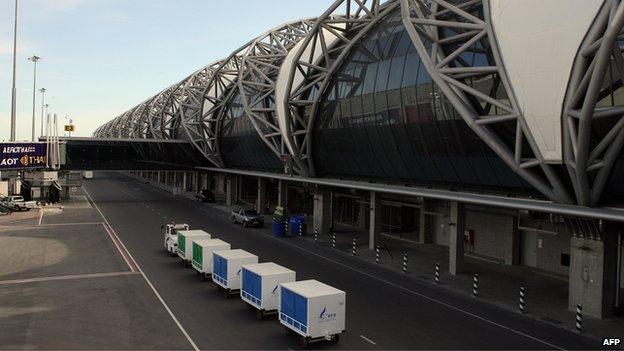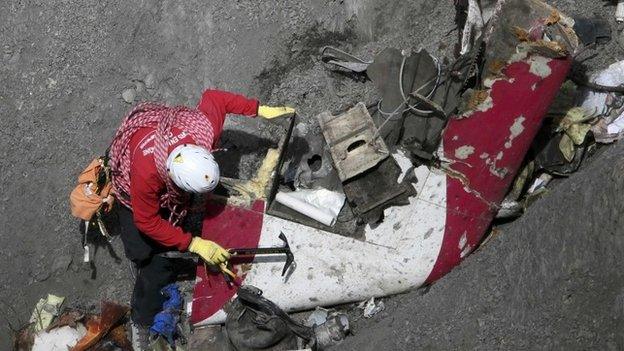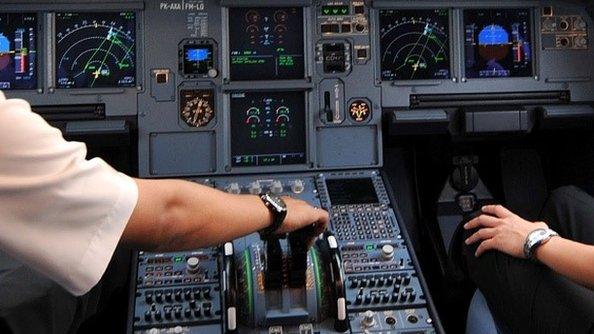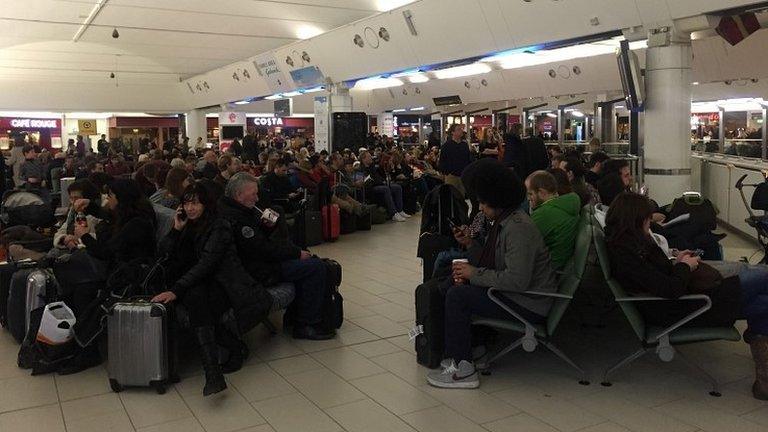Thai aviation sector under scrutiny after safety audit
- Published

There are concerns that Thailand's aviation sector may face international sanctions over safety concerns
Thailand's aviation sector is under scrutiny after an international safety audit led to a ban on new flights to China, Japan and South Korea.
Last week the International Civil Aviation Organization (ICAO) issued an alert flagging "concerns relating to air operator certification procedures".
As a result, Thai airlines have had to cancel flights, and refund or modify thousands of air tickets.
Thai officials have since submitted plans to tackle the ICAO's concerns.
An audit in January by the ICAO, a division of the United Nations, found that Thailand's aviation authority had a shortage of technical officers and problems with the certification for the transportation of hazardous goods.
Last week the ICAO issued an alert which triggered increased physical inspections of aircraft operated by Thai airlines serving existing routes to countries such as Australia and Singapore, a regional air hub, external, as well as a ban on airlines expanding their services.
This led to Thailand's carriers being prevented from adding any new flights or modifying their schedules.
The ICAO had last assessed Thailand's aviation sector a decade ago.
Its spokesperson Anthony Philbin told the BBC that they "continue to work with Thailand's civil aviation authority on resolving the issues in question."
"An ICAO audit does not review the levels of operational aviation safety in a state, or in the airlines or airports," he said.
"Rather our audits continuously monitor the capability of state civil aviation authorities to adequately resource and manage aviation safety oversight responsibilities in their jurisdictions."
Thai officials are now in talks with Japan to temporarily lift the ban on new flights. About 100 charter flights to Japan have been cancelled.
'Biggest impact'
The ban comes at a particularly difficult time for the Thai aviation sector, which has already been struggling with lower tourist numbers, following political protests in the country last year.
And the flight disruptions take place just ahead of Thailand's peak travel season and traditional new year celebrations of Songkran.
The nation's flag carrier Thai Airways, is already undergoing a major restructuring after posting an annual loss for the past two years.
But it is budget airlines that have been hardest hit by both the lower passenger traffic and the ban on new routes. Low cost carriers Thai AirAsiaX, Orient Thai Airlines and charter airline operators Asia Atlantic Airlines and Sky View have all been affected.
"While it might seem that Thai Airways might be worst hit, that might actually not be true, since the national carrier is in consolidation mode," Shashank Nigam, chief executive at consultancy SimpliFlying said.
"Fast-growing Thai budget airlines like Nok Air, AirAsia and Nok-Scoot will feel the biggest impact, since their plans to grow may be hit hard as they hold Thai licences as well."
Thai Transport Minister Air Chief Marshal Prajin Juntong told reporters this week that Thailand had struggled for a decade to comply with ICAO standards.
Mr Prajin told Reuters he hoped the issue would be resolved within eight months.
- Published30 March 2015

- Published26 March 2015

- Published21 March 2015
